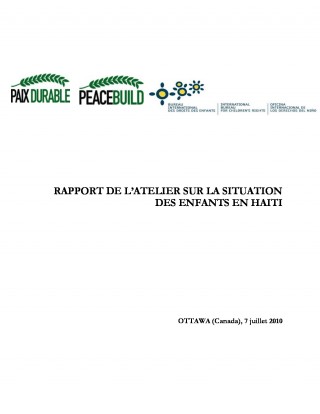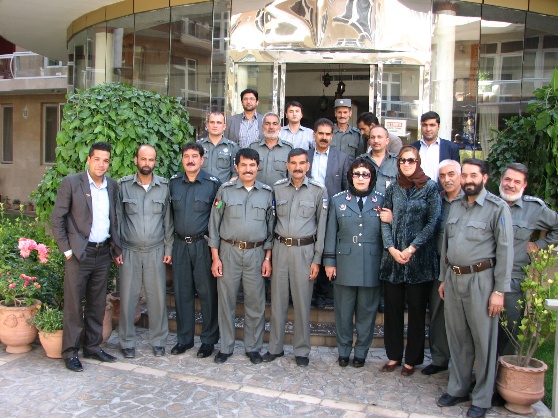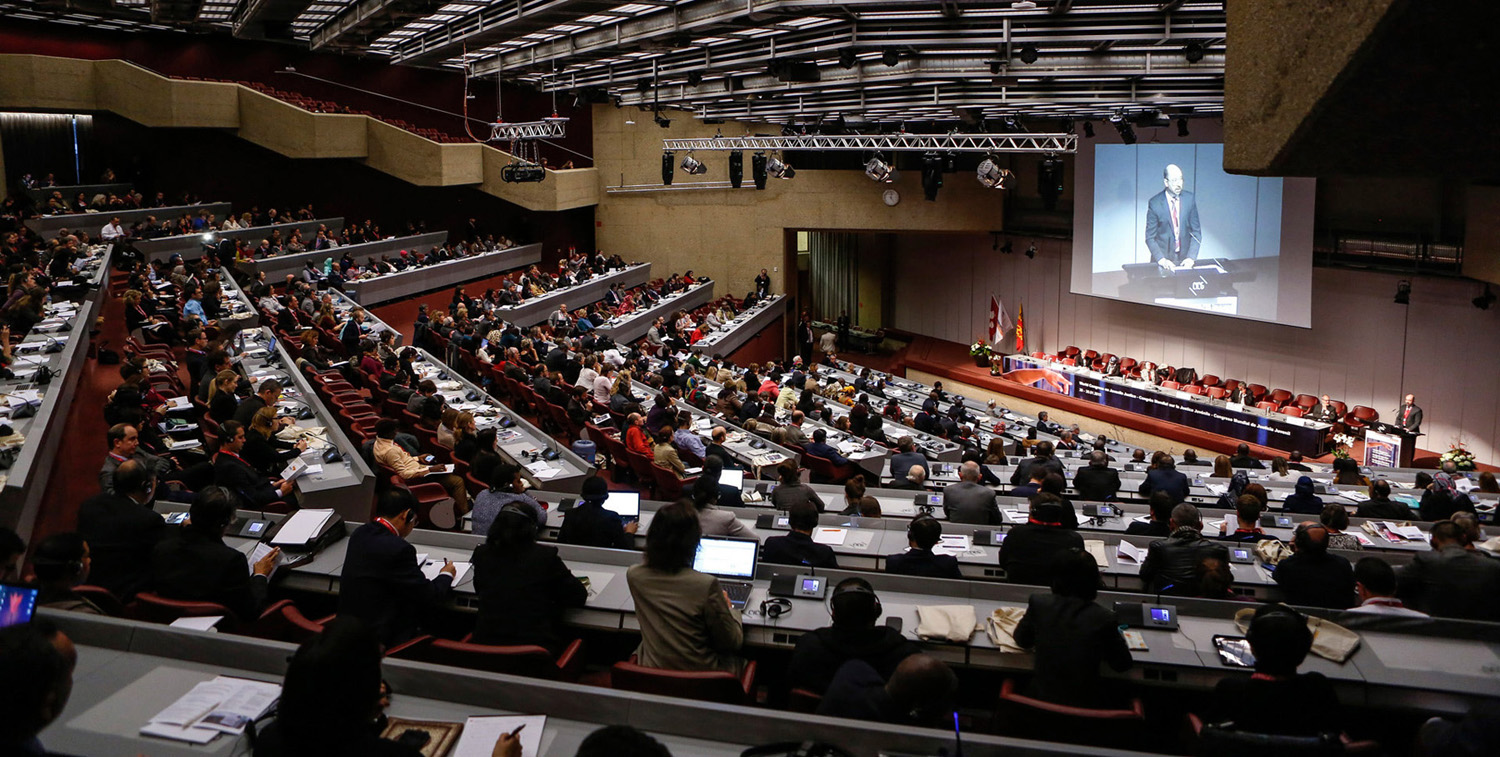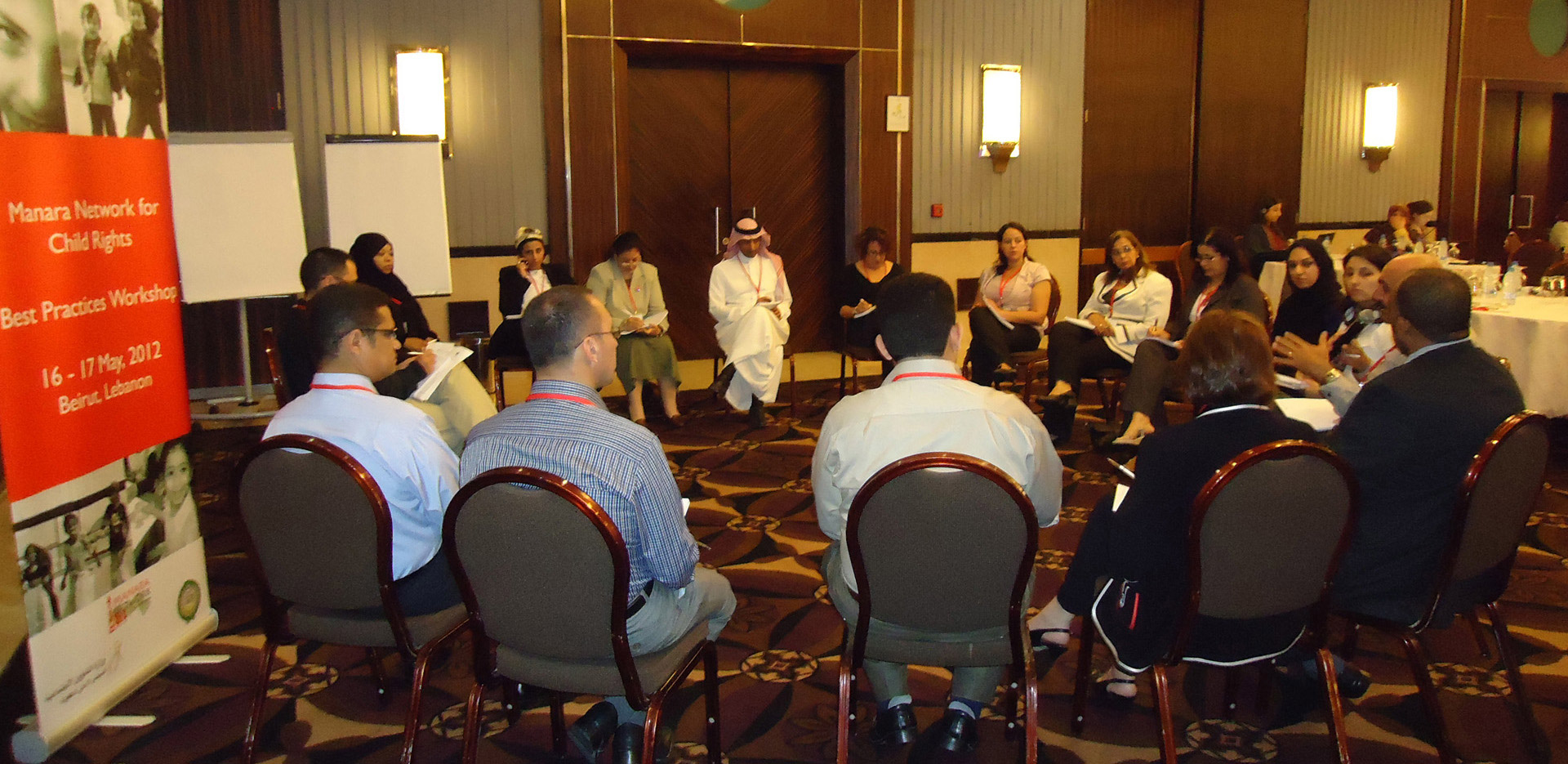Canadian Forum on Children and Armed Conflict
(…) It is important that concerted action is taken to protect children and to provide them with a humane environment worthy of their dignity.
Excerpt from the preface to the Guide on Children and Armed Conflict, written by Radhika Coomaraswamy, Under-Secretary-General, Special Representative for Children and Armed Conflict
Project Duration: 2006-2011
For many years, the IBCR has been an active member of the Working Group on Children and Armed Conflict, a network that includes Canadian civil society’s main players tasked with examining the condition of children in armed conflict. Under the auspices of Peacebuild, a Canadian network made up of civil society members focused on international issues, the group became the Canadian Forum on Children and Armed Conflict in 2006, and its initiatives were coordinated by the IBCR from 2007 to 2011. With financial support from the Government of Canada, the Bureau was mandated to coordinate the efforts of Canadian players, more specifically through the organisation of several campaigns and events aimed at promoting the rights of children in armed conflict.
Goals of the Forum:
- Promote strategies and politics to advance the cause of children in armed conflict in Canada and abroad
- Consolidate the needs and priorities of governmental and non-governmental players, for a concerted effort toward the rights of children in armed conflict
Actions of the Forum:
As coordinators, the IBCR and its partners carried out many important activities focused on the condition of children in armed conflict. For example, in 2008, the Bureau organised a two-day workshop in collaboration with Saint Paul University and with support from the Canadian International Development Agency (today, Global Affairs Canada). Held in Ottawa, the workshop focused on reintegrating children affected by armed conflict. Over 120 participants, including a dozen guests from all over the world and some 40 youths, attended the event to better identify the challenges associated with the reinsertion process, particularly the rights of girls, the difficulties of social and psychological reinsertion, the limits of programme financing methods, and collaboration possibilities with peacekeeping missions.
In February 2008, the IBCR was invited to speak about the situation of girls involved in armed forces and groups in Western Africa, during a conference held in Madrid that was organised by the Government of Spain and the Spanish Coalition to Stop the Use of Child Soldiers. The event marked the 6th anniversary of the enactment of the Optional Protocol to the Convention of the Rights of the Child on the involvement of children in armed conflict. Focusing on girls affected by armed conflict, the conference was attended by a dozen experts and some sixty participants.
In March 2008, the Bureau hosted another workshop, this time in Montreal. In total, 31 experts from a dozen countries came together to discuss the need for further investments in order to protect children from the negative impacts of conflicts, more specifically with regard to the UN Security Council Resolution 1612. The goal of the workshop was to analyse the issue and present the results to the Government of Canada. Many action items resulted from the workshop, most notably the inclusion of several concerns brought up during the workshop in the new guidelines for the implementation of Resolution 1612, as developed by UNICEF’s headquarters in New York. Some of these concerns included the need for a clear communication strategy and the importance of establishing connections between this work and other preventative initiatives carried out in the field. Other examples included: integrating many of the ideas discussed during the workshop into the Resolution 1612 workgroup in Afghanistan, or establishing new connections with programmes in Western Canada for children previously involved in armed conflict who were now living in Canada.
Furthermore, with help from the Bureau, the Forum worked in collaboration with the Government of Canada in guiding the Canadian strategy to help the development of children and youth in Colombia. The Forum also took part in political discussions during the Great Lakes Summit, aimed at finding a peaceful solution to the conflict in Uganda. With support from Plan Canada and Save the Children Canada, the Bureau helped the Forum produce a study on armed violence in Haiti and its impact on the protection of children. Finally, the Bureau assisted in structuring Canada’s contribution to the revision of the Cape Town Principles (which became the Paris Principles in 2007) and the Graça Machel +10 study.
The International Committee of the Red Cross defines an armed conflict as any difference between two States leading to the intervention of the members of the armed forces. According to the Uppsala Conflict Data Programme, an “armed conflict” refers to the use of armed forces between two or more parties in an intra-state or inter-state conflict, due to a governmental or territorial incompatibility, with more than 25 battle-related deaths in a given year. According to the Coalition to Stop the Use of Child Soldiers, the term “armed conflict” is used to designate international and non-international conflicts, of low to high intensity.
- Intervention locations : Worldwide
- Project duration: 2006-2011
- Partners :
- Peacebuild
- Global Affairs Canada)
- Highlights:
- The Bureau was invited to coordinate the Canadian Forum on Children and Armed Conflict
- A workshop for the reintegration of children affected by armed conflict was organised by Ottawa’s Saint Paul University
- An international workshop was organised in Montreal to discuss the application of UN Security Council Resolution 1612 and the protection of children in armed conflict
- Participated in the definition of a Canadian strategy to help the development of children and youth in Colombia
- Participated in political discussions during the Great Lakes Summit for a peaceful solution to the conflict in Uganda
- Helped structure Canada’s contribution in revising the Cape Town Principles
- Fields of activity and expertise :
- Tools, reference manuals and standards
- Children in emergency situations









